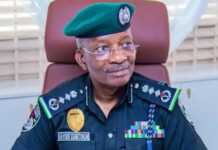Yesterday marked Chief Obafemi Jeremiah Oyeniyi Awolowo, GCFR (Yoruba: Ọbáfẹ́mi Awólọ́wọ̀; 6 March 1909 – 9 May 1987), 29th posthumous birthday. In honour of this national hero INFORMATION NIGERIA brings you 10 things you did not know about him.
He is most notable as the outstanding first premier of the Western Region but was also a successful federal commissioner for finance and vice president of the Federal Executive Council in the Civil War and was thrice a major contender for his country’s highest office
He was the first Leader of Government Business and Minister of Local Government and Finance, and first Premier of the Western Region under Nigeria’s parliamentary system, from 1952 to 1959.
He was also the official Leader of the Opposition in the federal parliament to the Balewa government from 1959 to 1963. In recognition of all these, Awolowo was the first individual in the modern era to be named Leader of the Yorubas (Yoruba: Asiwaju Awon Yoruba or Asiwaju Omo Oodua).
Awolowo pioneered free primary education in Nigeria in the Western Region and also free health care. Although Awolowo failed to win the 1979 and 1983 presidential elections of the Second Republic, he polled the second highest number of votes and his policies of free education and limited free health were carried out throughout all the states controlled by his party, the Unity Party of Nigeria.
Awolowo is best remembered for his remarkable integrity, ardent nationalism, principled and virile opposition, and dogged federalistic convictions. His party was the first to move the motion for Nigeria’s independence in the federal parliament and he obtained internal self-government for the Western Region in 195
He is credited with coining the name “naira” for the Nigerian standard monetary unit and helped to finance the Civil War and preserve the federation without borrowing.
He built the Liberty Stadium in Ibadan, the first of its kind in Africa
He also established the WNTV (Western Nigeria television), the first television station in Africa
He equally erected the first skyscraper in tropical Africa: the Cocoa House (still the tallest in Ibadan) and ran a widely respected civil service in the Western Region.
He was also conferred with the highest national honour of Grand Commander of the Federal Republic of Nigeria, a rank and a title that have ordinarily been bestowed upon the country’s presiden





